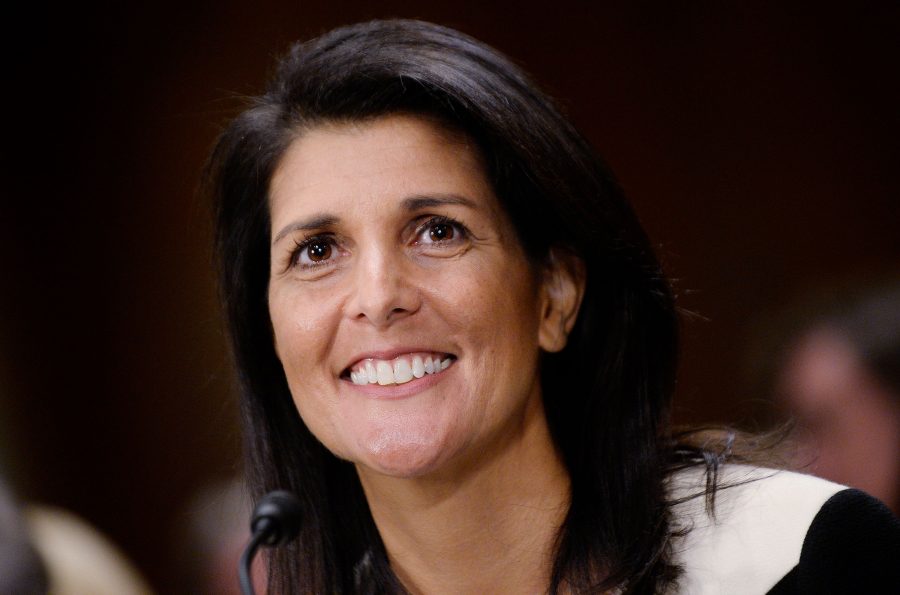UN and US face a changing future
South Carolina Gov. Nikki Haley, President Trump's pick for U.S. ambassador to the United Nations, is confirmed by a 96-4 vote in the the Senate on Tuesday, Jan. 24, 2017, in Washington, D.C.
February 1, 2017
As I was taking a tour of the United Nations a few years back, I saw a massive stack of papers attached to the doors of the General Assembly.
Each paper had a single number, and someone explained to me that they were counting down from 100 to one. These papers represented the last 100 days of the Millennium Project. Upon realizing that none of their goals would be met, the U.N., one of the most internationally known and influential consortiums in the world, decided this was the appropriate way to handle the end of this failed objective.
The idea of the U.N. was intended to be a systematic method of maintaining order and rationale on a global scale. Today, the U.N. and its various sub-organizations are responsible for trying countries at the International Criminal Court, protecting basic human freedoms such as food, shelter, health and education and monitoring human rights abuses.
The United States has a tremendous amount of influence over the U.N. The U.S. pays for over a quarter of the U.N. peacekeeping budget and just under a quarter of the general regular budget of the entire operation.
A few weeks ago, former President Barack Obama was under attack for not vetoing a biased and inaccurate resolution against Israel in the Security Council.
Get The Daily Illini in your inbox!
The new administration, several senators and other elected officials have also come out in opposition to the chapter six resolution, and though it is a non-binding agreement, they have called for the measures inside to be reversed or risk the U.N. losing funding.
And now, alongside Trump’s new ambassador to the U.N., Nikki Haley, things may indeed look very different. A potential executive order was released showing cuts of up to 40 percent in the allocation of voluntary funds to U.N. agencies involved in all manners of human activism.
The draft also calls to terminate funds to organizations that are controlled or highly influenced by states that sponsor terrorism. A second order shows a push to reanalyze all treaties, both those in effect or those soon up for debate.
Haley wants to ensure that U.S. money is going to the proper places if it’s going into a system like this one. Not vetoing the Security Council Resolution in December added to the frustration felt between Israelis and Palestinians because the rest of the world was attempting to unilaterally decide how to solve a decades-old conflict.
Besides the major issues with this particular resolution, countries that have consistently abused people’s rights such as Iraq and Saudi Arabia are sitting on the Human Rights Council telling other countries what to do. Peacekeeping troops have been reported for raping locals and contributing to outbreaks of dangerous epidemics.
There has been, like with every statement made by politicians, considerable frustrations with the proposed cuts, saying they will also prevent positive work from taking place. The international community has used American resources, as well as many other nations’ contributions, to make a difference across the world.
From assisting individuals in war-torn areas in acquiring food and clothing to sending medical care and modern technology around the world, it is undeniable that there are tasks that can be best accomplished by having a system like the U.N.
Despite those positives though, the U.S., for the last number of years, has turned its back on its closest democratic allies.
Ideally, moving forward, this body can stand for progress, order and morality, and the U. S. can once again be proud of its role within it.
Hayley is a sophomore in ACES.







